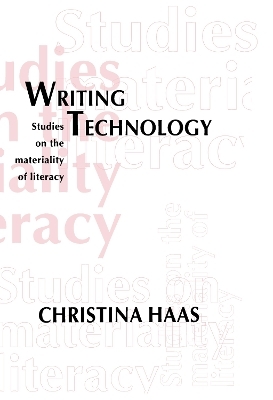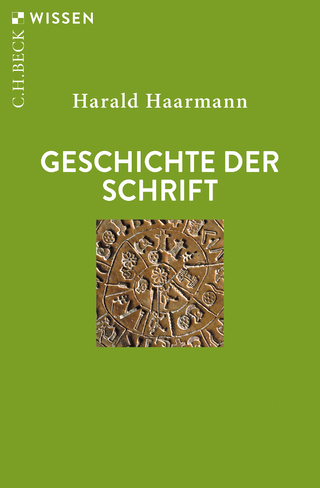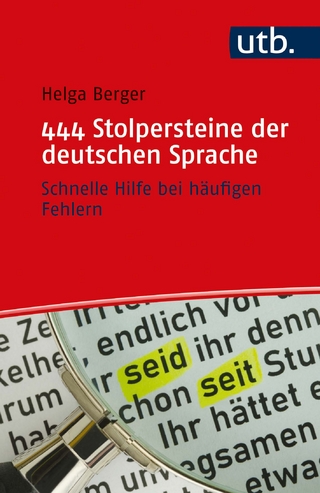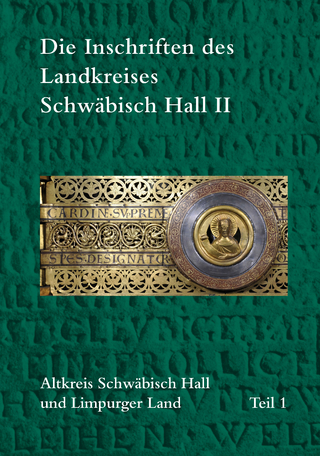
Writing Technology
Studies on the Materiality of Literacy
Seiten
1995
Routledge (Verlag)
978-0-8058-1306-7 (ISBN)
Routledge (Verlag)
978-0-8058-1306-7 (ISBN)
This volume deals with the relationship of writing to its technologies. It uses history, theory and empirical research to argue that the effects of computer technologies on literacy are complex. The author argues that just as computers impact on discourse, discourse itself impacts technology.
Academic and practitioner journals in fields from electronics to business to language studies, as well as the popular press, have for over a decade been proclaiming the arrival of the "computer revolution" and making far-reaching claims about the impact of computers on modern western culture. Implicit in many arguments about the revolutionary power of computers is the assumption that communication, language, and words are intimately tied to culture -- that the computer's transformation of communication means a transformation, a revolutionizing, of culture. Moving from a vague sense that writing is profoundly different with different material and technological tools to an understanding of how such tools can and will change writing, writers, written forms, and writing's functions is not a simple matter. Further, the question of whether -- and how -- changes in individual writers' experiences with new technologies translate into large-scale, cultural "revolutions" remains unresolved.
This book is about the relationship of writing to its technologies. It uses history, theory and empirical research to argue that the effects of computer technologies on literacy are complex, always incomplete, and far from unitary -- despite a great deal of popular and even scholarly discourse about the inevitability of the computer revolution. The author argues that just as computers impact on discourse, discourse itself impacts technology and explains how technology is used in educational settings and beyond.
Academic and practitioner journals in fields from electronics to business to language studies, as well as the popular press, have for over a decade been proclaiming the arrival of the "computer revolution" and making far-reaching claims about the impact of computers on modern western culture. Implicit in many arguments about the revolutionary power of computers is the assumption that communication, language, and words are intimately tied to culture -- that the computer's transformation of communication means a transformation, a revolutionizing, of culture. Moving from a vague sense that writing is profoundly different with different material and technological tools to an understanding of how such tools can and will change writing, writers, written forms, and writing's functions is not a simple matter. Further, the question of whether -- and how -- changes in individual writers' experiences with new technologies translate into large-scale, cultural "revolutions" remains unresolved.
This book is about the relationship of writing to its technologies. It uses history, theory and empirical research to argue that the effects of computer technologies on literacy are complex, always incomplete, and far from unitary -- despite a great deal of popular and even scholarly discourse about the inevitability of the computer revolution. The author argues that just as computers impact on discourse, discourse itself impacts technology and explains how technology is used in educational settings and beyond.
Cristina Haas, The Pennsylvania State University
Contents: Preface. Part I: Writing in the Material World. The Technology Question. Technology Studies. Part II: The Role of Technology in the Cognition of Literacy. Reading On-Line. Materiality and Thinking: The Effects of Computer Technology on Writers' Planning. Text Sense and Writers' Materially Based Representations of Text. Part III: The Social and Cultural Construction of Literacy Tools. Social Dynamics, or Scientific Truth, or Sheer Human Cussedness: Design Decisions in the Evolution of a User Interface. Constructing Technology Through Discourse with Ann George. Part IV: Conclusions and Future Inquiry. Historicizing Technology. Theorizing Technology.
| Erscheint lt. Verlag | 13.12.1995 |
|---|---|
| Verlagsort | New York |
| Sprache | englisch |
| Maße | 152 x 229 mm |
| Gewicht | 544 g |
| Themenwelt | Schulbuch / Wörterbuch ► Wörterbuch / Fremdsprachen |
| Geschichte ► Hilfswissenschaften ► Paläografie | |
| Geisteswissenschaften ► Sprach- / Literaturwissenschaft ► Sprachwissenschaft | |
| Mathematik / Informatik ► Informatik | |
| Sozialwissenschaften | |
| ISBN-10 | 0-8058-1306-3 / 0805813063 |
| ISBN-13 | 978-0-8058-1306-7 / 9780805813067 |
| Zustand | Neuware |
| Haben Sie eine Frage zum Produkt? |
Mehr entdecken
aus dem Bereich
aus dem Bereich
Schnelle Hilfe bei häufigen Fehlern
Buch | Softcover (2021)
UTB (Verlag)
18,00 €
Buch | Hardcover (2023)
Reichert, L (Verlag)
220,00 €


